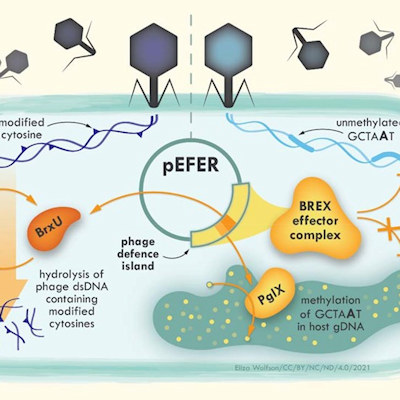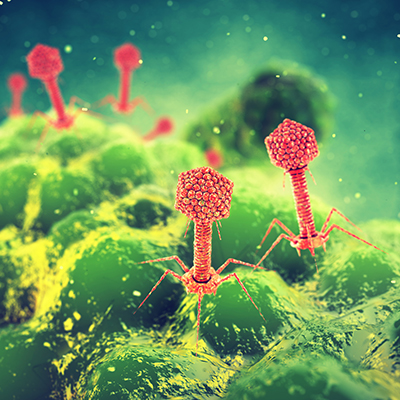July 18, 2022 -- Retrons, distinct DNA sequences found in the genome of many bacteria species, were first discovered in the 1980s. However, now European Molecular Biology Laboratory (EMBL) researchers have identified what flips the switch to activate a retron’s toxins to prevent a viral spread.
Researchers have found that some retrons encode toxin proteins, which they keep inactive with the help of a small DNA fragment, and when a bacterial virus (phage) attacks bacteria the DNA can sense the attack and unleash the toxin.
"Bacterial chromosomes contain hundreds of different toxin/antitoxin systems of unknown function that might be leveraged to inhibit phages, and our findings provide an approach to understand how they could do that," said Nassos Typas, PhD, group leader in the Genome Biology Unit and a co-chair of EMBL's Microbial Ecosystems and Infection Biology transversal themes, in a statement.
Using genetics, proteomics, and bioinformatics, EMBL researchers parsed out the mechanism, discovering how viral proteins can activate as well as block these systems and how retrons can thwart viral invasion on a single-cell level. The researchers reported their findings on July 18 in the journal Nature.
Copyright © 2022 scienceboard.net









